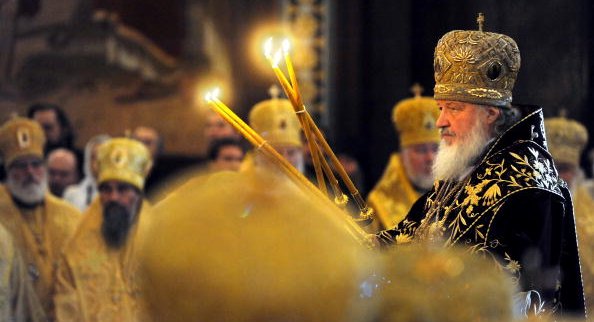A year after his enthronement, Patriarch Kirill has reenergized the Russian Orthodox Church, shored up his own support base and laid the foundations for a qualitatively new – if politically controversial – role for the Church in the state and society, according to the Carnegie Moscow Center’s Alexey Malashenko.
“What has Kirill achieved in his first year as patriarch? First, he has positioned himself as a reformer and pragmatist, aware that, in its current state, the Russian Orthodox Church could lose its influence in society. Action is his slogan. Second, he has set a policy of missionary work within the Church itself, that is to say, getting people who have an Orthodox background but who are distant from the Church today to return to the Orthodox fold. He is getting the Church increasingly involved in different areas of public life, trying to bring it closer to lay people by making it a part of secular life. He has put particular emphasis on work among young people, without whom the Church has no future.
“Third, he is working actively with the state and is obtaining the state’s agreement to give the Church a bigger role in politics. Kirill can be credited for the Church’s breakthrough [in getting approval for a course in basic religious instruction and secular ethics] in schools, and for the establishment of clergy to work on a permanent basis in the armed forces. The Church, under his direction, is ready to take an active part in the ‘conservative modernization’ proclaimed by the authorities.
“Fourth, he has obtained new concessions in getting Church property returned and is continuing to expand the Church’s material base. Fifth, he has been quite quick to build up a team of like-minded people from among the ‘Orthodox youth,’ who have become an important internal support base for him. Overall, the new patriarch’s first year has been very successful.
“But some of his achievements are dubious in terms of the benefits for society. The Church’s de-facto entry into the secular education system will be unlikely to prove effective, because making religion a school subject will risk turning off students already overloaded with work, and at the same time could cause interfaith friction. The presence of Orthodox chaplains in the armed forces could also produce undesired results, given that the number of Muslim servicemen is on the increase and Muslim clergy also hope to get similar approval to conduct worship in the military. Kirill has won the backing of the Kremlin and the government but has had a harder time reaching an understanding with the security and law enforcement agencies. The Church has not yet managed to create a modern information base and is not very visible on the Internet, which is a big disadvantage in terms of communication with young people. Finally, though he calls for openness, the patriarch’s point of view often reflects an ethnic and religious self-sufficiency, the idea that drawing on others’ experience is complicated and perhaps not even necessary.
“The second year will make it clear exactly what tendencies are going to dominate in Church ideology and practice and what the real prospects are for the Church’s renewal.”
